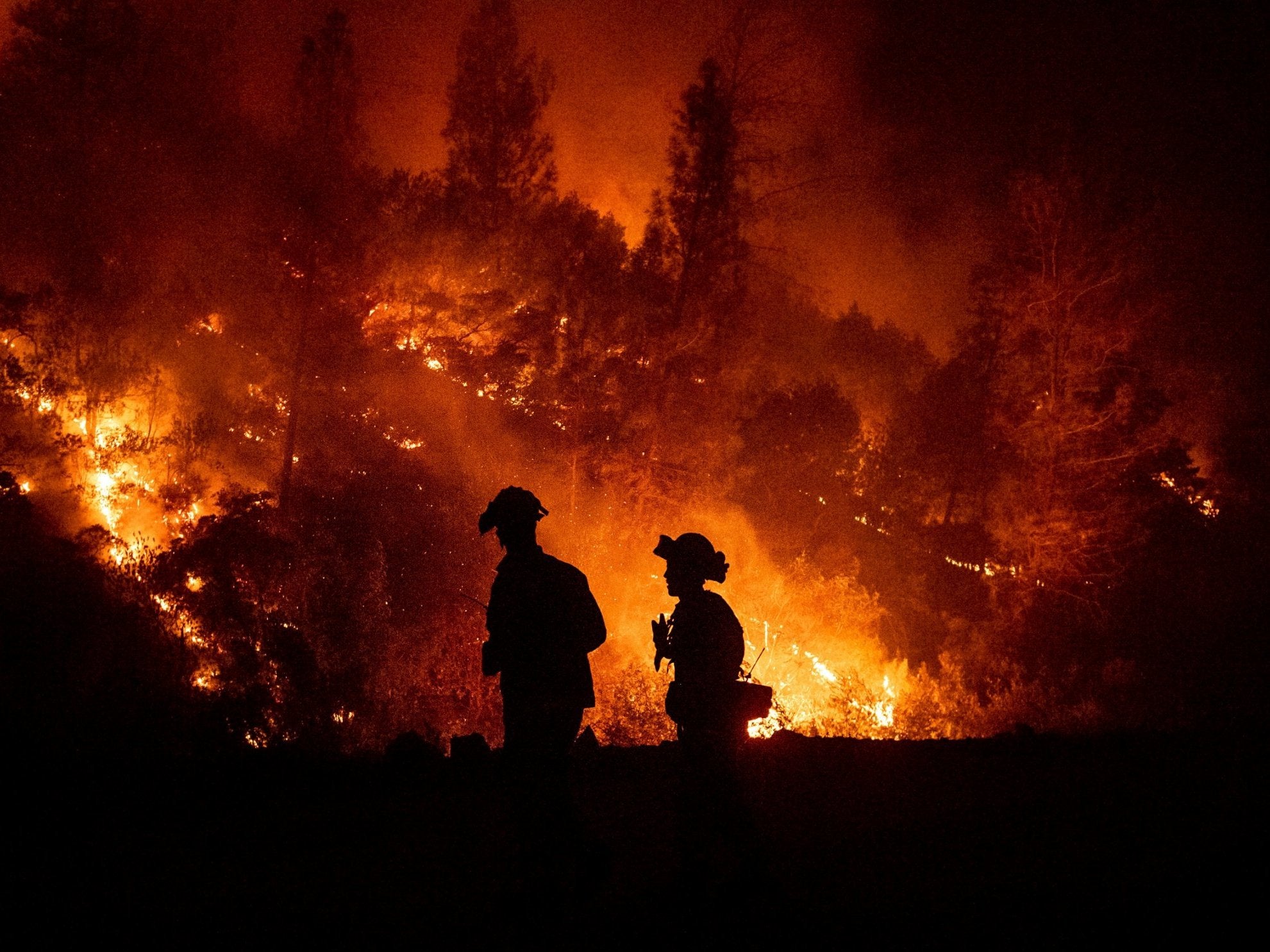Minority groups far more vulnerable to deadly US wildfires, study finds
Research adds to evidence for natural disasters disproportionately impacting certain groups

Massive wildfires of the kind that struck California this year disproportionately impact minority ethnic groups in the US, according to a study.
Communities that are mostly black, Hispanic or Native American are 50 per cent more exposed to these deadly blazes, based on a “vulnerability index” compiled by scientists.
Native Americans were by far the most vulnerable, as they were six times more likely than other groups to live in wildfire-prone regions.
The finding tallies with previous work that has revealed environmental disasters, including those being exacerbated by climate change, hit minority groups the hardest.
Hurricanes such as Katrina in 2005 have been noted for affecting black residents in cities like New Orleans worse than others.
According to the authors of the study, which was published in the journal PLOS ONE, their findings challenge preconceived notions about wildfires and their victims.
“A general perception is that communities most affected by wildfires are affluent people living in rural and suburban communities near forested areas,” said lead author Ian Davies, a graduate student at the University of Washington.
“But there are actually millions of people who live in areas that have a high wildfire potential and are very poor, or don’t have access to vehicles or other resources, which makes it difficult to adapt or recover from a wildfire disaster.”
To measure the vulnerability of people to fires, the scientists took into account 13 socioeconomic measures for more than 70,000 census regions.
The factors included income, housing type, English fluency and health, and these were then combined with information about wildfire potential in a given area based on historic records and weather patterns.
“We can see that the impacts of recent fires were exacerbated for low-income residents facing a shortage of affordable housing, for example, and for Hispanic residents for whom English is not their first language,” said Professor Phil Levin, lead scientist at The Nature Conservancy and one of the study’s authors.

The scientists used news reports from past wildfires to corroborate their findings.
These confirmed that in recent years language barriers prevented authorities releasing Spanish-language emergency information in a timely manner, putting Hispanic populations at greater risk.
A message emerging from their data was that natural disasters are not always completely natural, and are instead products of both environmental impact and the social, political and economic context in which that impact happens.
To address the problems they identified, the team called for authorities to take socioeconomic factors into account and help these communities prepare better for wildfires.
Join our commenting forum
Join thought-provoking conversations, follow other Independent readers and see their replies
Comments
Bookmark popover
Removed from bookmarks